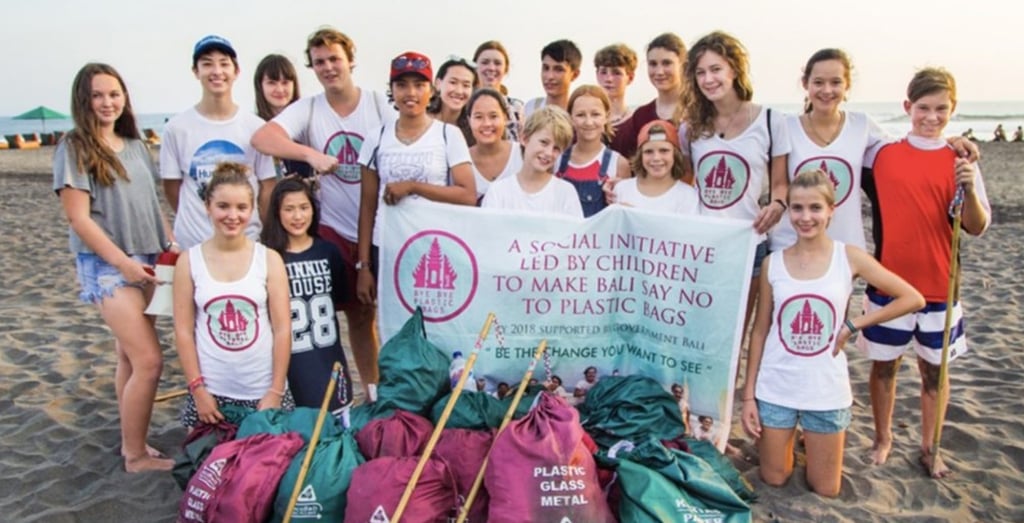How Two Sisters from Bali Led to an International Movement
COMMUNITY VOICES
Giovanna Anneliese Santoro
4/30/20252 min read


(Image taken from nowbali.co.id)
What can 2 youths do about a global plastic crisis? A lot, as it turns out. When sisters Melati and Isabel Wijsen were 12 and 10, respectively, they had never thought that their movement could have led to international recognition. Initially, they just wanted to ban plastic bags in their hometown, Bali. What started as a school project has quickly grown into Bye Bye Plastic Bags, a youth-powered campaign that not only changes government policy but has changed the mindset of many in Indonesia, to even around the world.
Bali, a tourism hotspot in Indonesia, struggles to be one of the contributors to Indonesia’s high plastic pollution rates. On beaches, in rivers, and scattered along roadsides, plastic is impossible to ignore in our lives. Initially, before Melati and Isabel’s movement, the enforcement of the Balinese government and the awareness of the people were weak. Frustrated by this, the Wijsen sisters decided to act, which led to their organization.
Most of their activities start from rallying friends, organizing Bali’s biggest clean-up every year with 60,000 volunteers across 430 sites and collecting 155 tons of plastic, as well as distributing reusable bags. Among their first campaigns was a fashion show in which the sisters and other activists wore clothing and accessories fashioned from recycled waste. Brands like Adidas and Patagonia are producing clothing made from recycled plastic, demonstrating how giving recycled waste a new life has become trendy and popular.
“It's already reported and studies already find that every week we are ingesting 5 grams—a credit card's worth—of plastic pollution every single week. Can you imagine what the future we are heading to? What will happen if we do not take action now?” said Melati during the Southeast Asia Development Symposium 2021.
Their activism paid off. Bali has set the standard in Indonesia by banning single-use plastic bags on July 1, 2019, in accordance with legislation No. 97/2018. Along the way, Melati and Isabel have also attended the World Economic Forum, UNESCO, and TED talks. In 2017, they also founded Mountain Mamas, a social enterprise that produces recycled-material alternative bags. The social enterprise supports the livelihoods of the women who reside in a community at the foot of Bali's Mount Batu Karu. Since then, Melati has established YOUTHTOPIA, a platform that empowers young activists around the world and makes sure the next generation is prepared to promote positive change.
“We believe that we kids may only be 25 percent of the world’s population, but we are 100 percent of the future,” said Isabel.
The Wijsen sisters’ story serves as an inspiration to what youths can do for a cause. With the story from Melati and Isabel, we can be inspired that simple projects and dedicated initiatives can make a huge impact on our community, country, and the world.
Bibliography (Chicago 17th-ed):
Southeast Asia Development Solutions. 2021. “Here's How a Young Change Maker Got Bali to Ban Single-Use Plastic Bags.” SEADS. https://seads.adb.org/articles/heres-how-young-change-maker-got-bali-ban-single-use-plastic-bags.
Sukarda, Wayan. 2020. “Young Balinese plastic activists shift focus to climate change.” After taking on plastic, Bali sisters want bar raised on climate action. https://www.weforum.org/stories/2020/10/plastic-pollution-bali-sisters-climate-action/.
UNESCO. 2023. “Bye Bye Plastic Bags.” UNESCO. https://www.unesco.org/en/articles/bye-bye-plastic-bags.
